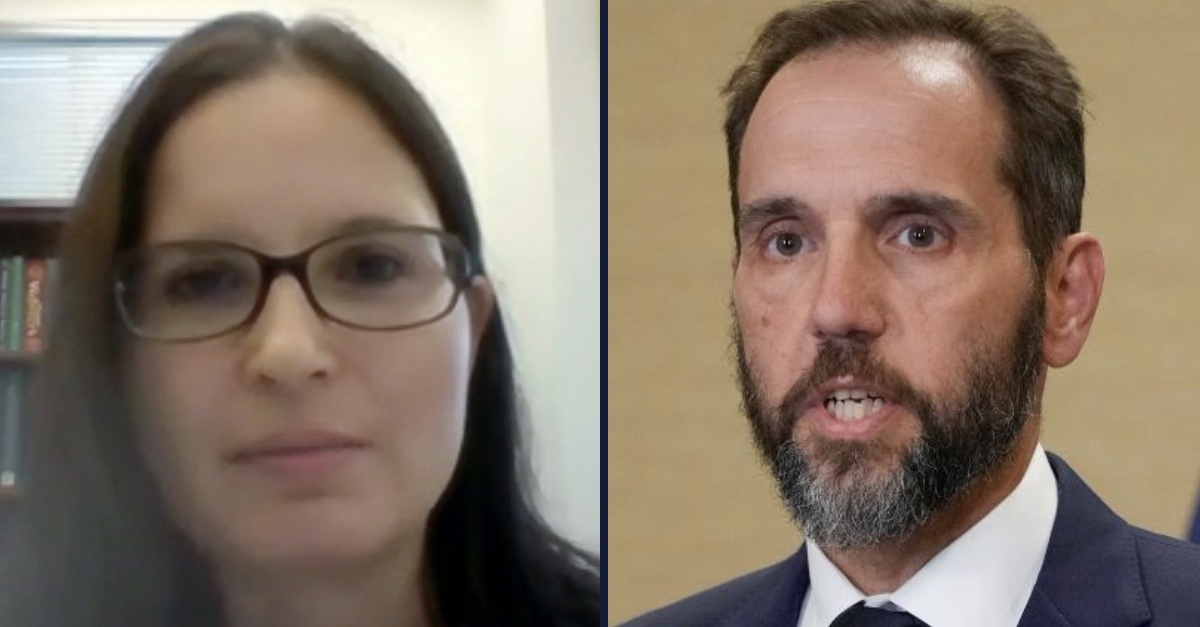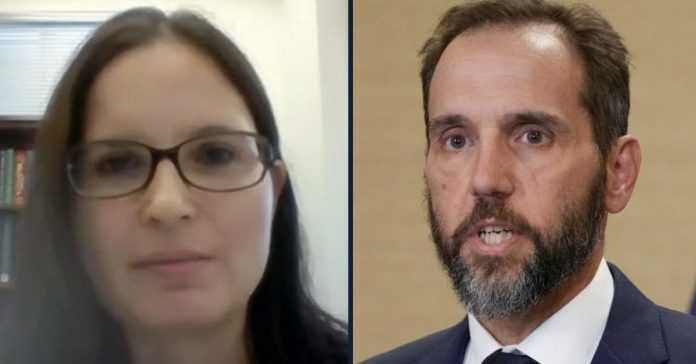
Judge Aileen Cannon (left) during a Senate Judiciary Committee oversight nomination hearing on July 29, 2020 (U.S. Senate via AP), Special counsel Jack Smith (right) speaks about an indictment of former President Donald Trump, Aug. 1, 2023, at a Department of Justice office in Washington. (AP Photo/Jacquelyn Martin)
In a late Wednesday filing supporting the reconsideration of a key ruling, the Special Counsel’s Office reiterated that attorneys for Donald Trump are playing a dangerous game by insisting on naming all witnesses in his Mar-a-Lago prosecution.
Special Counsel Jack Smith called on U.S. District Judge Aileen Cannon to correct her “clear error” and to prevent “a manifest injustice,” writing that there is an “acutely palpable” risk that “harassment and retaliation that would likely follow from the public dissemination” of government witness names and their testimony in the case.
According to Smith, Trump lawyers’ motion to compel discovery led Cannon astray in early February, when she ruled that the Special Counsel’s Office “has not set forth a sufficient factual or legal basis warranting deviation from the strong presumption in favor of public access to the records at issue.”
While Cannon, a Trump appointee, acknowledged that “witness safety and intimidation concerns can form a valid basis for overriding the strong presumption in favor of public access,” Smith has followed up by saying those concerns “more than satisfy the ‘good cause’ standard, and would satisfy even the heightened standard that the Court applied.”
The special counsel said that the heightened standard put forth by the Trump team and accepted by the court — that “discovery material subject to a protective order cannot be shielded from public disclosure absent a heightened First Amendment showing of a compelling interest and narrow tailoring” — was “wrong both procedurally and substantively.”
“Those procedural and substantive missteps contributed to the Court’s conclusion that the Government was required, but failed, to satisfy a heightened First Amendment standard to safeguard from public disclosure materials under a protective order,” Smith wrote. “Regardless of how the Court arrived here, that conclusion was clear error, and nothing in the defendants’ response demonstrates otherwise.”
Smith added that U.S. Magistrate Judge Bruce Reinhart got the applicable standard right in the earliest days of the Trump prosecution when he wrote the “public and the media have a qualified right of access to judicial proceedings that can be overcome by a showing of good cause.”
Urging the judge not to “needlessly expose” the identities of “numerous witnesses, agents, and third parties,” the special counsel said the First Amendment does not demand “such an outcome.”
The special counsel ended his reply by saying he would considering appealing if Cannon refuses to allow his “proposed redactions and sealing.”
Earlier Wednesday, Smith requested the “redaction and/or sealing of certain information” in defense filings and exhibits asserted the Trump lawyers were devoid of sympathy and concern for the well-being and safety of witnesses should they be identified publicly as the defense seeks.
Read the government’s reply in support here.
Have a tip we should know? [email protected]

